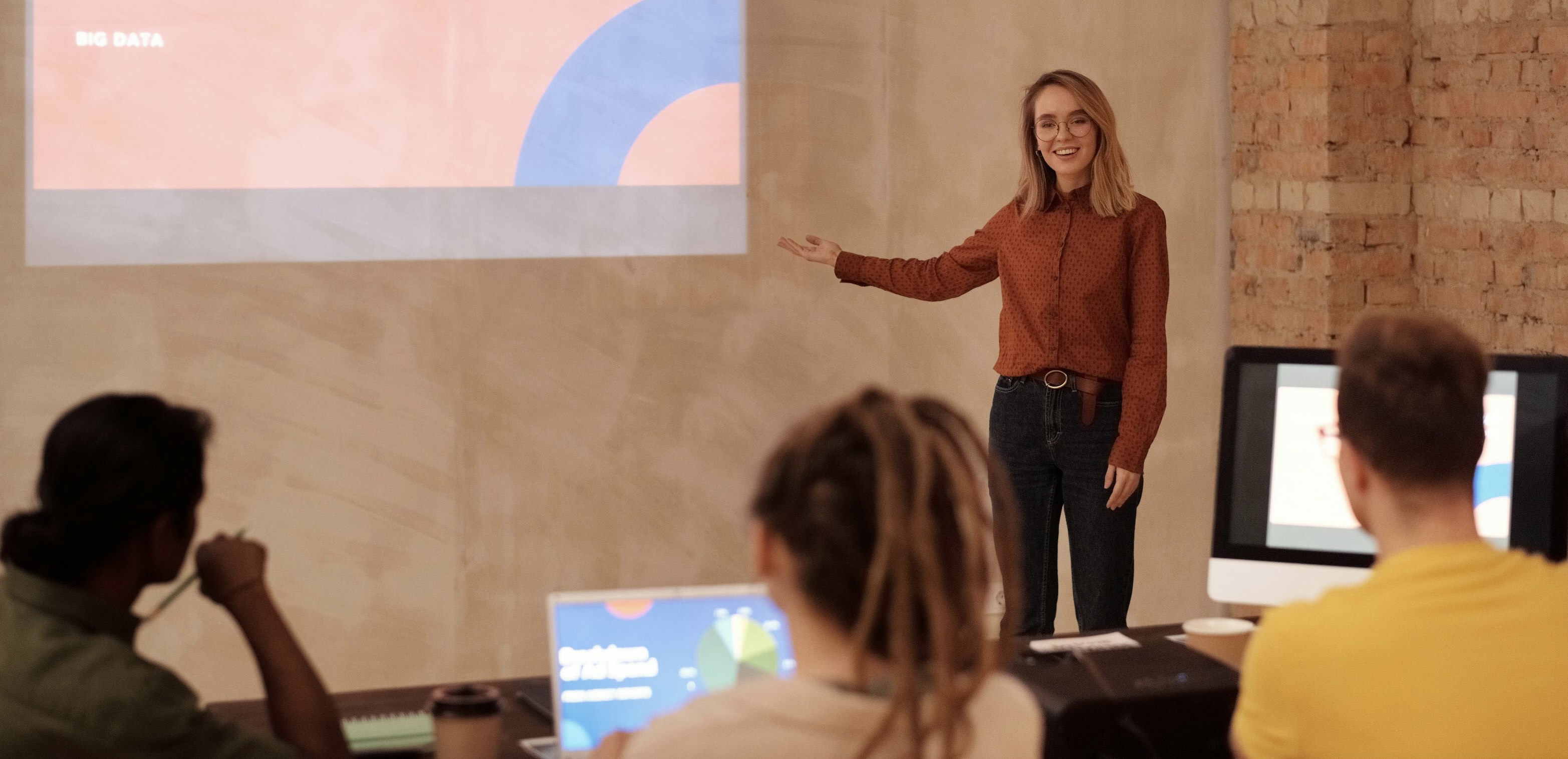This blog post was written by Liadan Gunter, Life Coach at Nivati. You can see more of their content on the Nivati platform and on the Nivati blog. If you want to learn more about Nivati, click here.
“Bam!” “Crunch.” “Swoosh.
I started running. Above me, I could hear the trees crunching and the branches rubbing their leaves up against one another, making sounds much like leaves merely swaying in the wind. The only difference was that these sounds weren’t coming from the wind; they were coming from chimpanzees. You may be wondering: what on earth can I learn from chimpanzees? Do they have anything to do with self-development? Well, they may seem like they don’t, but I think my story may surprise you.
“Quick,” Brian, a chimpanzee tracker, called to me as he darted off along the jungle floor of the Kalinzu Forest in Uganda. I followed quickly in order not to lose him and the chimpanzees. Above us, some of them were moving in the trees, while others were bellowing around us on the ground, sometimes beating it with their fists as they scrambled to keep up with each other, and us with them. We weren’t on a path anymore, but deep in the jungle, where moving quickly is quite challenging as you can often get tangled in the vegetation and feel as though you are becoming part of the jungle itself.
I was conducting research for my master’s thesis, which was broadly centered around understanding social behavior. My study was concerned with, specifically, understanding a neuropsychiatric disorder known as social apathy, which is rooted in a loss of motivation towards seeking social interactions. Most studies on this subject were based on neuroscience and conducted in laboratories and hospitals, but I wanted to examine it from a different perspective: an evolutionary, observational one.
In research, animals are often studied because they are thought to model us, humans, but provide a more simplified means of understanding human complexity, which is very useful because humans are the most complex creature on our planet. So, being able to examine an animal with a slightly less complex brain—but shares 98.8% of our DNA—makes it easier for us to understand what goes on in human brains more easily.
“They’re moving, again,” Robert said to me as he started walking in their direction. I stored my notebook and followed. It is customary for researchers to work closely with trackers since they spend every day in the jungle from dawn until dusk collecting data, and it’s safer to travel in pairs. The rain was coming down now. We were walking as a part of the group and were surrounded by different chimpanzees at varying distances. The pace of the chimps began to slow so we stopped walking to observe many of the chimps climbing the surrounding trees.
Just as I was pulling out my notebook from my backpack, out of the corner of my eye, and about 1.5 meters from me I saw the alpha male, Goku. He moved cautiously as we exchanged eye contact, and he climbed a tree right in front of me. Instead of him being afraid, he remained close to me, and we observed each other curiously in close proximity for about 5 minutes.
How Science Relates to Self-Development and Life Coaching

“Pinch me,” I thought to myself. This was one of the most incredible experiences of my life: to be able to observe our closest living relatives in their natural habitat. Not only that but be face to face with the alpha of the group. I was both terrified and exhilarated, and had goosebumps on my goosebumps. Up until this point, most of my research experiences had taken place in laboratories as I worked in basic neuroscience research for about 4 years after receiving my bachelor’s degree in neuroscience. I loved diving into neuroscience because I was always able to pick out principles that underlie our physiology and create tools that I then applied in my own life. It was like a fun game I played with myself. For example, when I was studying and trying to prepare for an exam, I drew upon principles of association to enhance my memory retention. Our senses: hearing, vision, touch, taste, and smell can be associated with our experiences and are stored as associations in our memories. This is why you sometimes get a whiff of something and it immediately transports you back to a place or the experience of where you smelled that. For me, it's the smell of sand and salt that always catapults me back to my childhood at the beach in Australia. The very smell of that combination triggers the image of fish and chips shops along the beach for me. So, using these principles, I came up with the idea of chewing the same flavor gum every time I learned about a particular subject, studied with the same flavor gum, and took the test with the same flavor gum, allowing the taste of the gum to allow for greater access to memories associated with that flavor. And you know what? It worked.
It wasn’t just the studying of neuroscience that I loved; I really enjoyed working in the lab. Sometimes, however, I felt that something was missing: a missing puzzle piece to understanding behavior, perhaps, that could only be solved by looking from the outside in, in conditions as close to natural as possible.
This concept of looking from the outside in is something I am greatly familiar with. It is what led me to be so utterly curious about the human condition that I dedicated my career to understanding it. You see, I grew up living in multiple countries from the age of only 4. By the time I was 12, I had already lived in 3 countries across 3 continents and spoke 2 languages. Often, in order to assimilate into the different countries that I found myself in, I would first observe the groups around me in order to understand how things worked: how people worked. Through all the different cultures, I noticed many commonalities and differences that inspired a question in me: why do humans behave the way they do?
To answer this question I looked to neuroscience, psychology, and, lastly, anthropology to find my answers. I traveled as much as I possibly could, and moved to 2 other countries in my adulthood, worked in 3 other ones, and even learned a third language. Along the way, I discovered how our brains inform so much of what we do, and how they function, and, conversely, how we function. I observed how cultures and groups impact our behavior just as we impact the groups we are a part of with our own. After two degrees and years of research I felt like I finally had some answers. From neuroscience I learned how the brain processes, stores and makes inferences on information, and how it impacts learning, behavior, and guides decision making. Everything from social processing, memory formation, even sleep all have explanations that lie in the physiology of our brains. From chimpanzees, I learned about how we may have evolved as a species, and the power and influence our social groups have on us.
So, what is there to take away from all of this? Well, this type of information is power because it explains how we function, which allows us to make the most out of the systems that underlie this functioning. That means if you have a fear, for example, looking to neuroscience or our evolutionary history, you can begin to unravel how the fear may have developed in the first place due to our brain circuitry, and our evolutionary disposition to certain phobias over others. This information can then be put to use to develop a strategy for overcoming it. It was during my master’s degree that I realized that making science applicable to people’s lives could help them. There’s no need for science to be locked away in journals where few people can access them. Science can be applied in many domains. I believe that it can help people understand themselves, the world around them, and the groups they are a part of better. I believe that once we, as a species, are able to do this, we would be more equipped to reach our full potential, and understand each other in more meaningful ways, which, hopefully, could bring more tolerance to this world.
How did I realize that coaching could be the vehicle for accomplishing this? Being an avid self-development content absorber, I started to notice that the content I was learning lacked something. Many coaches would talk about motivation, for example, and would use beautiful stories to inspire. I often felt uplifted, as I’m sure many others do by content like that. However, I couldn’t help but notice that motivation doesn’t rest on the ability for us to be inspired, it’s regulated by neurotransmitters in the brain, which many factors can influence.
This was the lightbulb moment that led me to understand the importance science can have in the field of self-development—particularly coaching, as it’s currently the second-fastest in the US. I eagerly began learning everything I could about coaching, and how science could be leveraged to assist it, and I developed my own program. In my own coaching practice, I take coaching a little deeper. So, if the topic of concern is one of motivation, I educate my clients on how our brains are actually wired for it and try to provide tools so that they can make the most out of their biology.
A Scientifically Backed Way to Boost Employee Motivation
For example, motivation is actually the drive to act and achieve particular goals that is modulated by a system in the brain known as the reward system, which uses dopamine, a neurotransmitter, as its primary means of communicating. Whether those goals be ones of basic needs such as acting to access food, water, and shelter, or higher-order needs such as social connection, the reward system reinforces behaviors associated with rewards, and inhibits behaviors that may lead to punishment. Additionally, rewards affect learning. Dopamine tends to enhance reward-related memories. In other words, it makes those memories stronger.
Interestingly, it’s the expectation of rewards that influence our memories the most, particularly if there is a difference in reward expectation. In other words, if a reward is greater than expected, then dopamine firing increases. The reverse is also true.
Let’s say you’re a manager, and you’re having trouble motivating your employees, or, perhaps, your employees appear to be unmotivated. One trick you could use to increase motivation is to provide greater than expected rewards to your employees. That could be a surprise token of some kind to a member of your team for completing a difficult project, or even just for being an employee. Whatever you choose, the key to it would be to give an unexpected positive reward. This could, then, increase motivation for subsequent tasks as the unexpected, positive nature of the reward would trigger a memory to form related to the completion of the task, ultimately increasing a positive association with completing the task. This could then have a positive influence over the motivation of future tasks. This is just an example of how one can use the principles of science to find and create tools that work in tandem with our biology.
The best thing about a platform like Nivati is it in itself is a reward. It provides access to services that can have a positive effect on mental health and wellbeing. Providing Nivati to your employees is the type of unexpected reward I’m talking about.
When I came across Nivati, I was inspired by their desire to make self-development and health more accessible to people. With our aligned missions, I feel so fortunate to have been chosen to join their team as a life coach where I, now, have the privilege of sharing science, coaching people, and learning about humanity one-on-one.
Disclaimer
By participating in/reading the service/website/blog/email series on this website, you acknowledge that this is a personal website/blog and is for informational purposes and should not be seen as mental health care advice. You should consult with a licensed professional before you rely on this website/blog’s information. All things written on this website should not be seen as therapy treatment and should not take the place of therapy or any other health care or mental health advice. Always seek the advice of a mental health care professional or physician. The content on this blog is not meant to and does not substitute for professional medical advice, diagnosis, or treatment.






